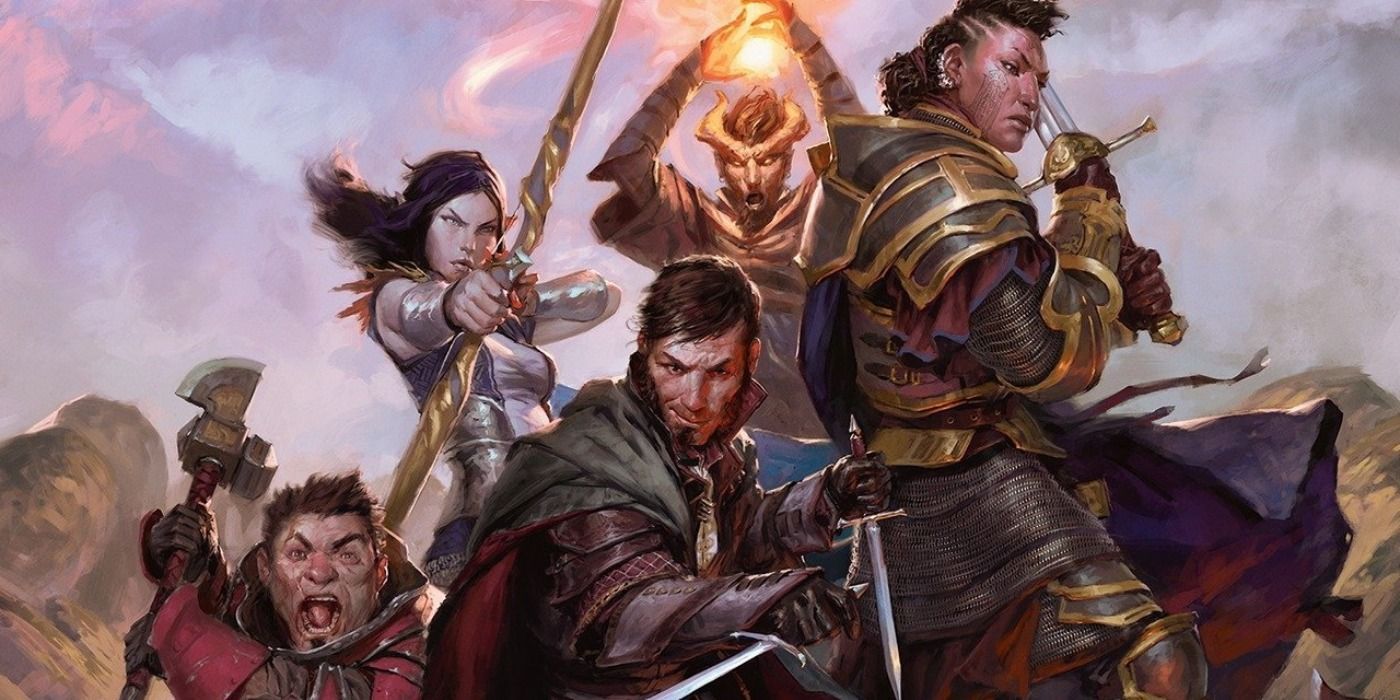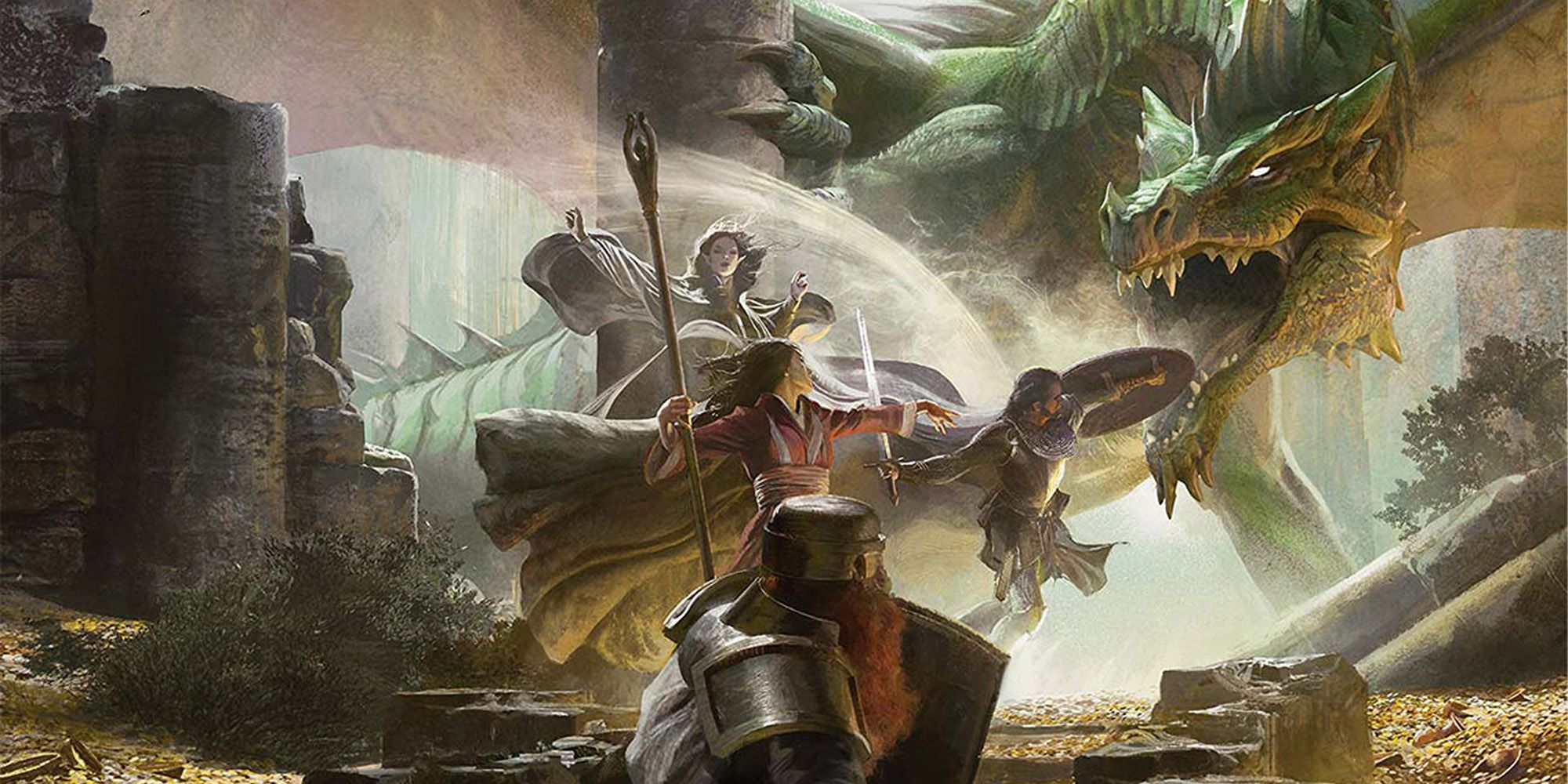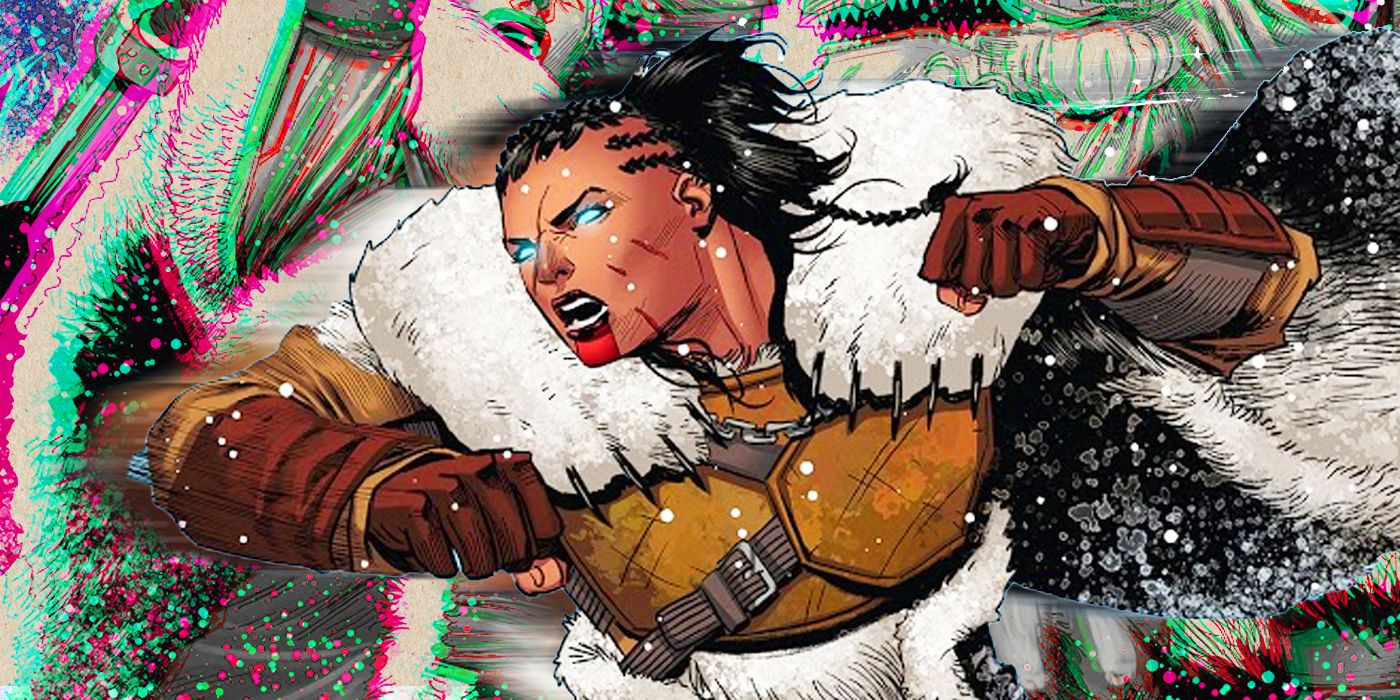When describing a Dungeons & Dragons character, two things first leap to mind -- race and class. There are dozens of small choices that differentiate characters from one another, but the shorthand used to quickly describe them almost always uses those two qualities. But despite the huge range of possibilities of the game's thirteen classes and dozens of races, certain combinations tend to rise to the surface. You're far more likely to see a Half-Orc fighter or an Elven wizard than the inverse combination. That's because of ability score increases, which are hugely important to character creation. A fighter in full plate armor has nothing to gain from an Elf's +2 bonus to Dexterity, and a wizard will go through entire sessions without needing to think about their Strength score.
Tasha's Cauldron of Everything attempts to resolve this problem by reworking the game's approach to racial traits. Previously, ability score increases represented what each race is typically good at. Orcs are strong, so they get a Strength bonus. Elves are willowy and graceful, so they get a bonus to Dexterity. The new rules introduced in Tasha's recognize that individual members of a race might not line up with popular perceptions of their kindred. This is doubly so for adventurers, who are often exceptional in one way or another. After all, your Orc wizard might have +2 to Intelligence, having studied for many years at the land's highest academy, or your Elf fighter might have +2 to Strength, reflecting a more muscled build.
While the new rules allow you to choose whichever scores you like when assigning your racial bonuses, there are still a couple of rules to follow. The numerical bonuses themselves don't change, which means Half-Elves (who get +2 to Charisma and +1 to two other stats) have a significant leg up over most other races, which stick to a +2/+1 formula. You also can't choose to put those bonuses into the same stat, which stops you from supercharging whatever score is most important to your character from the start.
Ability scores aren't the only part of racial bonuses Tasha's alters -- the book also affects how a character receives languages and proficiencies. Languages are simple enough, as a player can choose to replace any of their typical languages with any other in their particular campaign world. Skill, tool, weapon and armor proficiencies get a little more complicated. Skills can be traded out for any other, just as languages can, but the rest of the proficiencies follow an odd sort of hierarchy. You have armor at the top, which can be traded out for any other tool or weapon proficiency. Below that are martial weapons, which can be traded out for proficiency with any other simple or martial weapon, as well as any tool. Even further down are simple weapons and tools, which are interchangeable. This specificity is likely to prevent the easy acquisition of heavy armor proficiency, which is carefully restricted to certain classes.
And if all of that wasn't enough, Tasha's presents one final option to its readers -- the custom lineage. Custom lineages are meant to represent flavorful characters who would otherwise be shoehorned into playing variant humans. After all, there's no other way for a character to start at the first level with a feat. Feats offer a huge range of possibilities, such as a character marked by the Fae or trained in martial combat. By making these feats available with a mechanical base that's the same for any creative expression, players no longer have to feel like they're at a disadvantage for being creative.
To create a custom lineage, players first choose a creative representation. This can be anything from the dozens of already-printed races made available by Wizards of the Coast to something more esoteric or particular to a custom setting. The only restrictions are creature type (which must be Humanoid), speed (which must be 30 feet) and size (which must be Small or Medium). Whichever ability score the player thinks best fits their character increases by two, and they gain a feat of their choice. They gain Common and one language of their choice, and then have one final choice between Darkvision and a free skill proficiency. This template is hugely flexible and offers up a WOTC-approved way for players to make custom races without their Dungeon Masters having to worry about balance.



